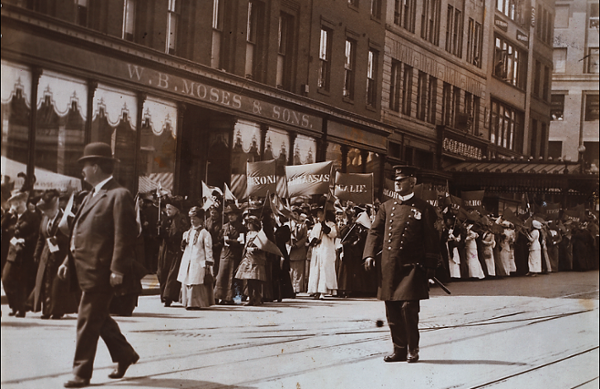
This year marks the centennial of the Nineteenth Amendment, which enfranchised women by providing that “[t]he right of citizens of the United States to vote shall not be denied or abridged by the United States or by any state on account of sex.” The amendment, which became law after the Tennessee legislature ratified it in August 1920, generated considerable political and constitutional controversy.
Invoking federalism, opponents argued that the amendment would unconstitutionally invade the reserved powers of the states over the conduct of state and local elections and that no federal remedy was needed because states were free to enfranchise women, as approximately half the states had done, at least to some extent, by 1920. Although the Fifteenth Amendment in 1870 had prohibited racial discrimination in voting, opponents of the suffrage amendment contended that the Fifteenth Amendment was anomalous because it was a necessary correlation to the abolition of slavery in the Thirteenth Amendment.
Advocates of the suffrage amendment contended that an unconstitutional constitutional amendment was an oxymoron, and they pointed out that highly restrictive amendment processes in many states and widespread political opposition to enfranchisement of women precluded the likelihood of suffrage legislation in a significant number of states
Opponents of the amendment assailed its constitutionality even after its enactment, until the U.S. Supreme Court sustained it in a 1922 decision, Leser v. Garnett. Justice Louis D. Brandeis explained that a constitutional amendment is “a federal function derived from the Federal Constitution; and it transcends any limitations sought to be imposed by the people of a State.”
The history of the Nineteenth Amendment is intertwined with that of the so-called Prohibition Amendment, the Eighteenth Amendment, enacted in 1919, which prohibited the manufacture, sale, or transportation of alcohol. Since women had been highly active in the prohibition movement, the enactment of the prohibition amendment mooted fears of opponents of prohibition that enfranchisement of women would facilitate prohibition. The enactment of the prohibition amendment also undermined constitutional arguments against women’s suffrage because invasion of states’ rights had been one of the major arguments against nationwide prohibition; if the Constitution could mandate nationwide prohibition, its power to require states to enfranchise women seemed clearer.
Although social and cultural changes and the widespread enfranchisement of women throughout the Western world during the early 20th Century almost surely made enfranchisement of American women inevitable, American participation in the First World War during 1917-18 probably hastened it. Throughout the war, advocates of women’s suffrage insisted that a nation purporting to fight a war for the survival and spread of democracy could not without hypocrisy deny the vote to more than half its population. As the president of the Women’s Political Union explained, the triumph of the suffrage movement would ensure victory in the war because it would enable the nation to “fight with clean hands and clean consciences for democracy.” Moreover, the critical contributions of women to the war effort in households, offices, farms, factories, and hospitals demonstrated that women were responsible citizens who could be trusted with the ballot. President Woodrow Wilson, who long had favored leaving suffrage to the states, emerged as an advocate of the suffrage amendment in 1918, declaring that “[t]his war could not have been fought…if it had not been for the services of women.”
Although the Nineteenth Amendment did not end widespread gender discrimination, its enactment was a necessary predicate for the many advancements in gender equality that have occurred during the following century.
William G. Ross is the Albert P. Brewer Professor of Law and Ethics. His recent book, “World War I and the Constitution” (Cambridge University Press, 2017), includes a chapter about the woman’s suffrage amendment.
